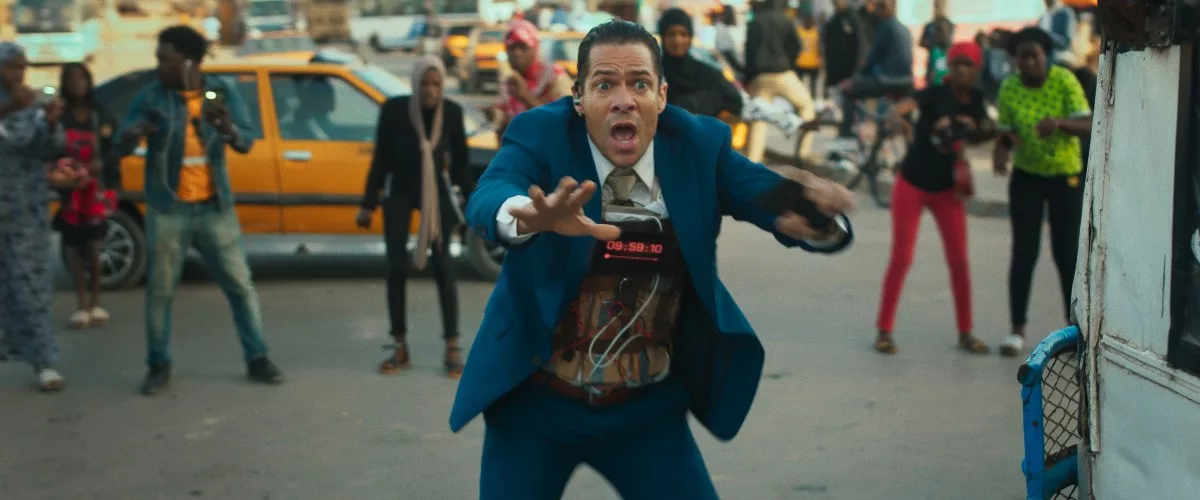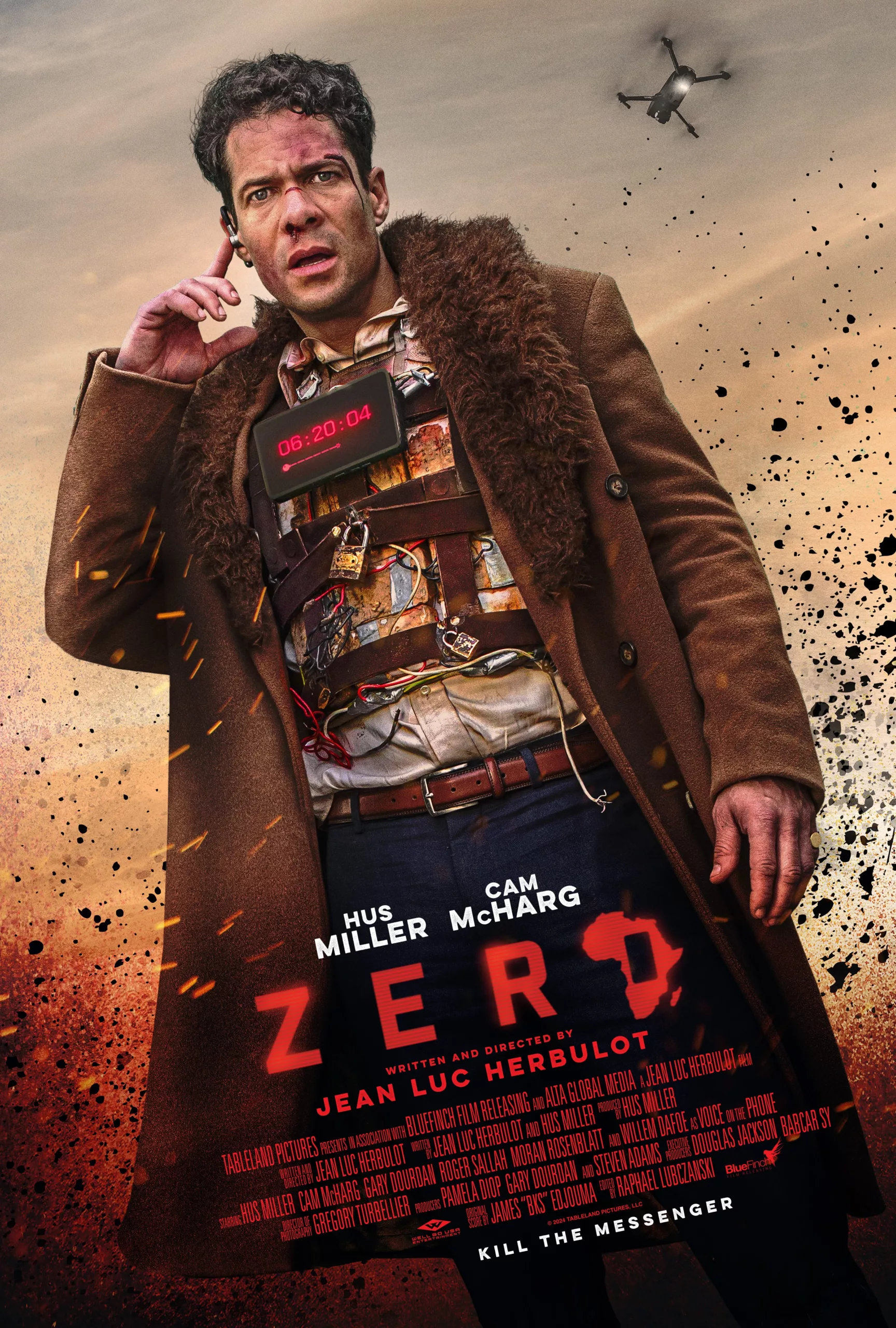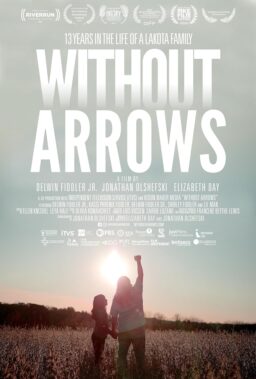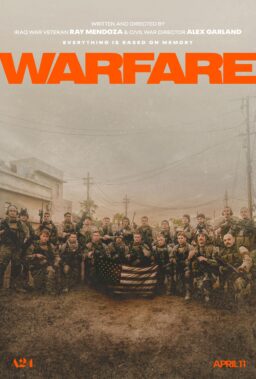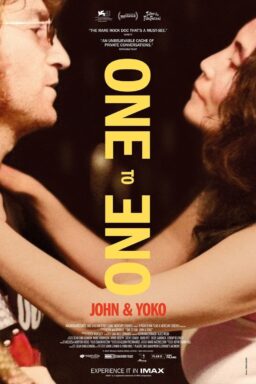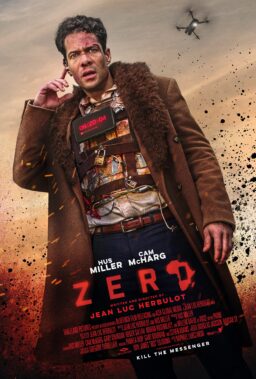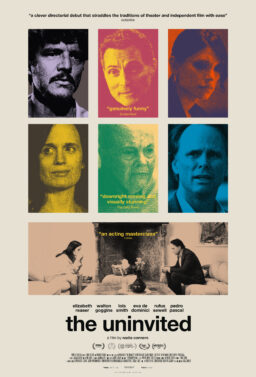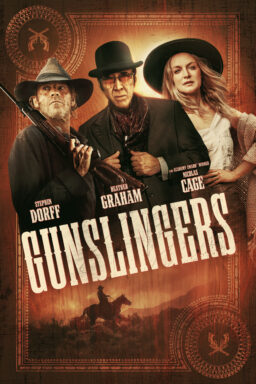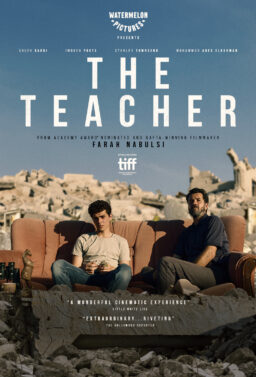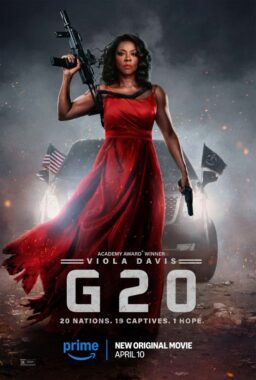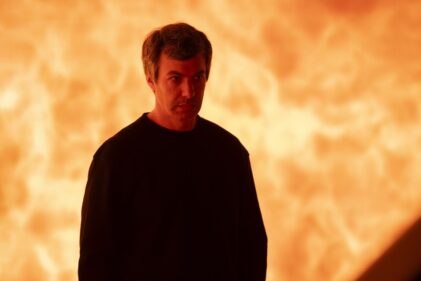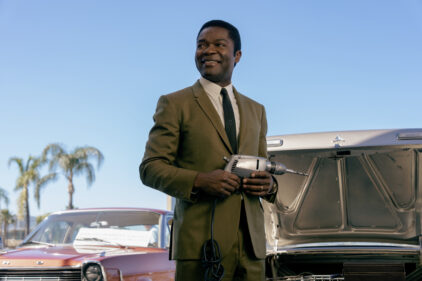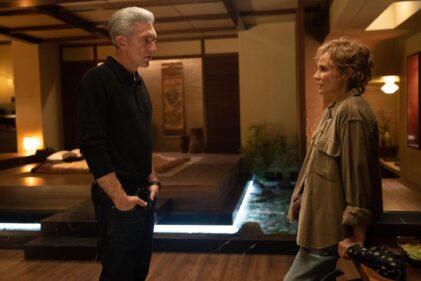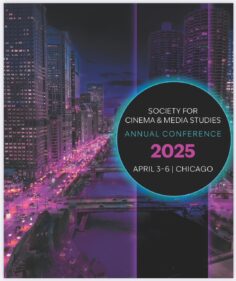Congolese filmmaker Jean Luc Herbulot’s “Saloum” was one of the best films of TIFF 2021, a daring fusion of action cinema aesthetics with both African myth and fact. That the filmmaker’s long-awaited theatrically-released follow-up “Zero” (after a VOD movie in 2024 called “Interstate” that I hadn’t heard of before today) is a bit of a step-down isn’t surprising. Still, it’s nice to have his robust filmmaking on display again, an assertion that he truly is an international filmmaker to watch. This time, he uses a visual language that recalls American action blockbuster filmmakers like Michael Bay (the drone usage is Bay 101) or Neveldine & Taylor (the supercharged story has echoes of “Crank”) to tell a story of the complex dynamic between the United States and Africa. “Zero” bursts out of the gate with an adrenaline that Herbulot can’t maintain, leading to a mid-film slowdown that holds the movie back from greatness, but this is an admirable effort, an action thriller that somehow feels both familiar and fresh at the same time.
Hus Miller, who co-wrote and produced, plays a character defined only as “One,” an American who awakens on a bus in Dakar with a bomb strapped to his chest. He is handed an earpiece, through which he hears the unmistakable tone of Willem Dafoe, a perfect bit of casting. Unlike Anthony Hopkins in the similarly structured “Locked” last month, Dafoe chews on every line of his voiceover work from his “tick tocks” to the way he draws out “great” like he’s Tony the Tiger. Despite never being seen and fading as a character as the film goes on, he’s great, a case of an actor completely understanding the assignment.
The voice in One’s ear orders him on a series of missions across Dakar and quickly unites him with Two (Cam McHarg), another American in a similar Jigsaw-esque situation. It becomes pretty clear that One and Two are symbols for American interference, even referred to once as “wealth” and “violence.” One is a well-dressed fast talker; Two punches him in the throat the first time they meet. They are sent on increasingly violent and dangerous tasks, ones meant to rile up the population of Dakar to revolt against the American invaders.
While critics commonly complain about shallow characters, “Zero” actually falters when it decides to put on the brakes to provide backstory for leads that aren’t even named. It’s an unnecessary screenwriting move that drains the film of the immediacy of the first act in which confusion and the lack of identity for the two hapless souls helps with the momentum. We don’t need to know the back story of the rollercoaster to enjoy the ride. And Herbulot and Miller face similar structural issues when they get blatantly political in the final act in a way that underlines and highlights themes the film has already made through its storytelling. The political subtext of “Zero” is more potent when it’s subtext than when it’s spelled out, even if the film’s messaging feels earnest and well-informed.
Coming in under 90 minutes and with little narrative fat, “Zero” is a worthy successor to “Saloum,” a reminder of a rising talent on the international action scene who blends his knowledge of his homeland with a deep appreciation of the history of action filmmaking. Let’s hope he doesn’t take so long to make another one.

